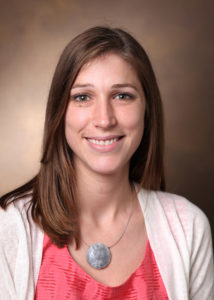
Cancer patients with other comorbidities have a higher risk of dying from COVID-19, according to a recent study published in the journal The Lancet.
While patients in good shape and with few confounding conditions should proceed with anti-cancer treatment after a diagnosis of COVID-19, patients at risk for severe complications should discuss the risks and benefits of continuing cancer treatment with their physician, according to Alicia Morgans, MD, MPH, associate professor of Medicine in the Division of Hematology and Oncology and a co-author of the study.
“This study does not provide absolute answers that any particular comorbidities should lead to stopping cancer treatment; those kinds of decisions must be made on a patient-by-patient basis,” Morgans said. “We must consider an individual’s risk of dying from untreated cancer, how effective a particular cancer treatment is expected to be for a particular disease and what the patient’s goals and wishes are.”

As COVID-19 began to sweep the globe, oncologists and scientists connected on social media, concerned about the impact of COVID-19 on patients with cancer. Within one month, they formed the COVID-19 and Cancer Consortium (CCC19), a combined patient data registry with more than 100 participating institutions.
Investigators analyzed 30 days of clinical data from more than 900 patients receiving cancer treatment, finding that 13 percent of patients died. This is more than twice the current observed case fatality rate of 4.8 percent reported by Johns Hopkins University.
Older age, male sex and the presence of two or more comorbidities that require active therapy were all associated with a higher risk of death. While receipt of chemotherapy or other anti-cancer therapies was not associated with higher mortality, other conditions that can be caused by cancer treatment — such as frailty — were also associated with a higher risk of death.
“This tells us that we need to consider the whole patient, including the cancer, its treatment, and the individual’s fitness and comorbid illnesses, when we work with patients to make the right decision for them about therapy,” Morgans said.

On the other hand, patients with few underlying conditions should be safe to continue therapy, according to Mary Mulcahy, MD, ’00 GME, professor of Medicine in the Division of Hematology and Oncology and co-author of the study.
“Healthy patients with cancer generally fared well,” said Mulcahy, who is also a professor of Radiology and of Surgery in the Division of Organ Transplantation.
In addition, the CCC19 serves as a positive example for how inter-institutional data sharing can be hastily deployed to learn about emerging diseases and conditions, according to Firas Wehbe, MD, PhD, associate professor of Preventive Medicine in the Division of Health and Biomedical Informatics, chief research informatics officer and co-author of the study.
“We leveraged the informatics infrastructure at Feinberg and our experience with large data-sharing research networks to participate in this blazing-fast self-organizing multi-institutional effort,” said Wehbe, who is also an associate professor of Pathology. “The ability of multi-disciplinary teams to nimbly assemble is key to tackling this epidemic and future emerging threats.”
Morgans, Mulcahy and Wehbe are members of of the Robert H. Lurie Comprehensive Cancer Center of Northwestern University. In addition, Mulcahy is assistant director of Clinical Operations and Wehbe is associate director of Clinical Informatics in the Quantitative Data Sciences Core, both at the Lurie Cancer Center.
Wehbe is also director of the Applied Research Informatics Group (ARIG) at the Northwestern University Clinical And Translational Sciences Institute (NUCATS).
This study was partly supported by grant MRSG-16-152-01-CCE from the American Cancer Society and Hope Foundation for Cancer Research; the Fonds de Recherche du Québec-Santé clinician-scientist scholar program; the Jim and Carol O’Hare Fund; National Cancer Institute grants P30 CA013696, P30 CA016056, P30 CA016672 P30 CA023100, P30 CA054174, CA060553, P30 CA068485, P30 CA196521, T32 CA009515, T32 CA203703, UG1 CA189974 and U01 CA231840; and National Human Genome Research Institute grant T32 HG008341.






